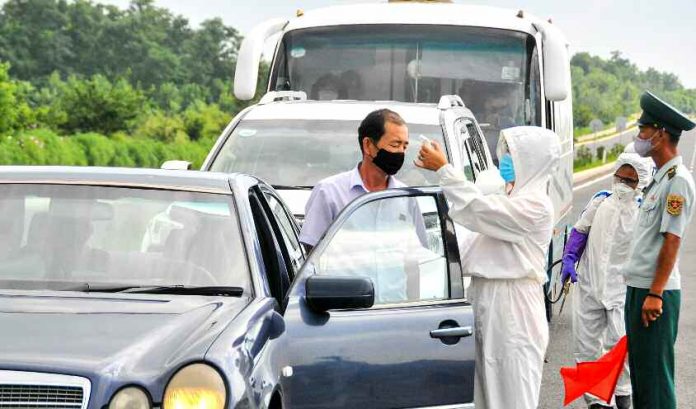
North Korean authorities in Yanggang Province recently responded to bereaved family protests regarding the government’s policy of “unconditionally” cremating people who have died since May 12, when the regime announced an outbreak of COVID-19.
According to a source in the province last Thursday, the Emergency Anti-epidemic Command of Yanggang Province ordered the implementation of a more structured system to designate whether people have died from COVID-19 or not.
Specifically, the provincial Ministry of Social Security announced that when it receives a death notification through the citizen registration departments of the ministry’s city and county branches, it will officially recognize COVID-19 as the cause of death only if it receives a signature from the body processing team sent to the scene.
In short, the local government declared it would need signatures from three entities — the inminban, the hospital in the form of a death certificate, and the on-site body processing team — to recognize COVID-19 as the cause of death, regardless of whether the person was quarantined with COVID-19 symptoms or suffered from COVID-19 symptoms prior to death.
The source said the Ministry of Social Security issued the order due to an atmosphere of intense public discontent.
North Korea had been unconditionally cremating bodies based on the country’s emergency quarantine law, while leaving the cause of death undisclosed in most cases. That had earned public ire as the victims do not appear as COVID-19 deaths in the official statistics.
The source said the family of a death in Samsu County went to the Ministry of Social Security prior to cremation to protest how the ministry cremated bodies without telling families what they died of, and demanded information about the exact cause of death of their loved one.
“The family begged the ministry to return the body to them if [their loved one] hadn’t died of COVID-19, and asked several times that they be allowed to at least hold a funeral, but they were rebuffed,” he said.
Outraged by how the government would not return the body of their loved one – and angered by officials’ refusal to confirm COVID-19 as the cause of death or even include the deceased relative in the official statistics on COVID deaths – some family members continued to raise the issue until they were finally jailed for about 10 days for expressing opposition to state policy.
“The Ministry of Social Security freed them after warning that they would pay a high price for resisting again, telling them that raising objections about regulations in the emergency quarantine law during a national quarantine emergency is something done by people who don’t trust the state when times are tough,” the source said.
“People think this is all the result of officials who are trying to dodge responsibility by lowering the numbers of COVID-19 deaths in their reports,” the source continued, adding, “[People] can’t say anything openly, but inside, their anger is growing.”
Translated by David Black. Edited by Robert Lauler.
Please direct any comments or questions about this article to dailynkenglish@uni-media.net.

















